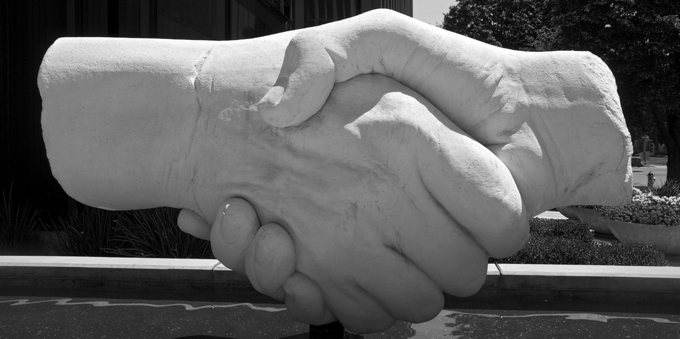We must restore Labour’s fraternity
Recently I was asked how excited members of the Labour party were about their membership. As we were talking, Anne-Marie Huby (co-founder of Justgiving.com) then pointed to research published by the Harvard Business School that suggests the best reflection of...
Recently I was asked how excited members of the Labour party were about their membership. As we were talking, Anne-Marie Huby (co-founder of Justgiving.com) then pointed to research published by the Harvard Business School that suggests the best reflection of the quality of any organisation is the number of people who would recommend it to their family, close friends and colleagues.
On this criterion, most organisations don’t even get a positive score and I wondered why my immediate reaction had been to assume that our party would do very poorly on this test indeed.
This is a time when membership of all political parties is depressingly low. Less than 1 per cent of the population belong to any party at all and if we count only truly active members the situation would appear even worse.
Since this conversation, other members of our party have confirmed my intuitive response and I have given some thought to why we are viewed so negatively.
Why is the experience of being a member of our party so poor today? Why do those that do join often leave after such a short time? And why aren’t people joining us in their thousands?
My thoughts went back to a wonderful speech by Michael Foot, in which he talked about the influence on modern radical politics of the French Revolution and its call of liberty, equality, and fraternity.
Michael happened to be speaking in the Huddersfield Fraternity Cooperative Hall during the 1983 general election, and spoke at a time of the split in the Labour party that created the SDP and the rise of the militant tendency.
“Tonight”, he said, “I don’t want to concentrate on liberty or equality, I want instead to talk about the most difficult of all to achieve in our movement and our party – fraternity.”
Is it this lack of fraternity in our party part of the problem? Could rebuilding and restoring fraternity be the way in which we make our party more attractive and more effective?
There is plenty of evidence of a lack of fraternity if we read the diaries of those who led our party during the last period in government. Most of us who were there were dismayed at the rapid deterioration in the way members of the same party treated each other.
Surprisingly, much of the lack of fraternity has not been based on differing ideologies or deep political disagreements but on personalities, fractions and private grudges.
So where has this lack of friendship, trust and cooperation come from, which has in too many respects turned us into a nasty party? Inevitably, we look at what happened at the very heart of our government when we were in power and discover the senseless rivalry between two men.
Unfortunately, many of the associated divisions and factions are still with us and the ghastly way some members treat each other still seems to be accepted as normal practice. This shames our party and helps to make it deeply unattractive to many existing members. It is not exactly the strongest recruiting card either.
Of course, there is no doubt in my mind that apart from the early days – when the Labour party, trade unions and other working class organisations emerged – there was never a golden age of fraternity where all was sweetness and light but I am convinced that the situation we are in now is one which we must recognise and do something radical to change.
We have time before the next election to reappraise what the Labour party could and should offer its members and to positively turn away from some of the deeply unpleasant aspects of our party’s recent history. We can recognise that much of the hostility between personalities during these past years prevented us from fully achieving all that we could have done, while we were in office.
We should systematically apply the tough Harvard criteria to ourselves – would you recommend membership of our party to members of your family, close friends and colleagues? If we don’t respond to the challenge, how do we expect to attract the millions of people who don’t vote, don’t register to vote, and even those of us who vote for us but do so with a heavy heart.
